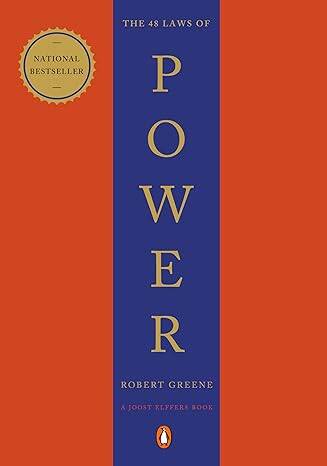Masculine Books: Stories of Strength, Adventure, and Wisdom
Masculine books capture tales of resilience, courage, leadership, and personal growth. They often explore themes of adventure, self-discovery, and overcoming challenges, appealing to those who value strong narratives and deep introspection. From classic literature like Hemingway's "The Old Man and the Sea" to contemporary works like David Goggins' "Can't Hurt Me," these books inspire readers to embrace their inner strength, face life's obstacles, and strive for greatness. Whether you’re looking for action-packed fiction, timeless philosophy, or motivational biographies, masculine books offer a wide range of stories that resonate with ambition and character. Perfect for anyone seeking inspiration or simply enjoying tales of bold journeys and meaningful lessons.
Must Reads by Ayn Rand
Ayn Rand, a renowned novelist and philosopher, is best known for her influential works that explore themes of individualism, capitalism, and the human spirit. If you're new to her writing or looking to revisit her groundbreaking ideas, here are two must-read books that define her legacy:
- Atlas Shrugged: This epic novel delves into a dystopian world where the most productive members of society rebel against oppressive government controls. It's a profound exploration of freedom, innovation, and the power of the individual.
- The Fountainhead: A compelling story of an uncompromising architect, Howard Roark, who battles against societal norms to pursue his vision. This novel celebrates creativity, independence, and staying true to one's principles.
Both books serve as an introduction to Rand's philosophy of Objectivism, which emphasizes rational self-interest and the pursuit of happiness. Whether you're drawn to bold characters or thought-provoking ideas, these works are essential reads for anyone curious about her impact on literature and philosophy.

Amoral, cunning, ruthless, and instructive, this multi-million-copy New York Times bestseller is the definitive manual for anyone interested in gaining, observing, or defending against ultimate control – from the author of The Laws of Human Nature.
In the book that People magazine proclaimed “beguiling” and “fascinating,” Robert Greene and Joost Elffers have distilled three thousand years of the history of power into 48 essential laws by drawing from the philosophies of Machiavelli, Sun Tzu, and Carl Von Clausewitz and also from the lives of figures ranging from Henry Kissinger to P.T. Barnum.
Some laws teach the need for prudence (“Law 1: Never Outshine the Master”), others teach the value of confidence (“Law 28: Enter Action with Boldness”), and many recommend absolute self-preservation (“Law 15: Crush Your Enemy Totally”). Every law, though, has one thing in common: an interest in total domination. In a bold and arresting two-color package, The 48 Laws of Power is ideal whether your aim is conquest, self-defense, or simply to understand the rules of the game.

One of the world’s most beloved writers and New York Times bestselling author of A Walk in the Woods and The Body takes his ultimate journey—into the most intriguing and intractable questions that science seeks to answer.
In A Walk in the Woods, Bill Bryson trekked the Appalachian Trail—well, most of it. In A Sunburned Country, he confronted some of the most lethal wildlife Australia has to offer. Now, in his biggest book, he confronts his greatest challenge: to understand—and, if possible, answer—the oldest, biggest questions we have posed about the universe and ourselves. Taking as territory everything from the Big Bang to the rise of civilization, Bryson seeks to understand how we got from there being nothing at all to there being us. To that end, he has attached himself to a host of the world’s most advanced (and often obsessed) archaeologists, anthropologists, and mathematicians, travelling to their offices, laboratories, and field camps. He has read (or tried to read) their books, pestered them with questions, apprenticed himself to their powerful minds. A Short History of Nearly Everything is the record of this quest, and it is a sometimes profound, sometimes funny, and always supremely clear and entertaining adventure in the realms of human knowledge, as only Bill Bryson can render it. Science has never been more involving or entertaining.